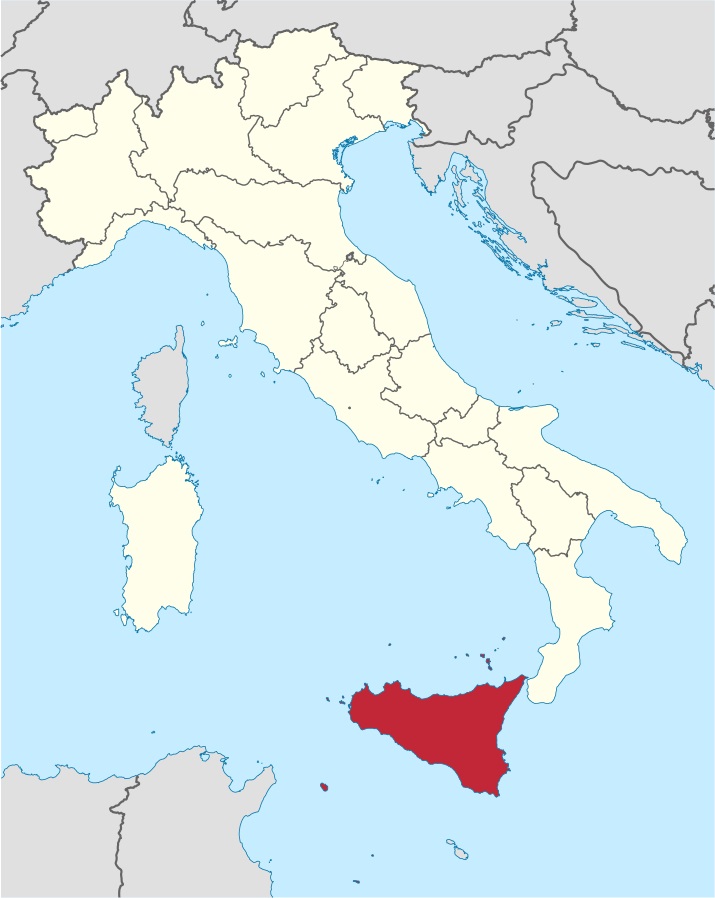Summary | Excerpt | Reading Guide | Reviews | Beyond the Book | Read-Alikes | Genres & Themes | Author Bio

A Novel
by Jo PiazzaThis article relates to The Sicilian Inheritance
 We may think of Sicily today as merely an extension of the Italian mainland, but the island has its own unique history that dates back thousands of years and reflects the cultural, political, and economic influence of numerous civilizations.
We may think of Sicily today as merely an extension of the Italian mainland, but the island has its own unique history that dates back thousands of years and reflects the cultural, political, and economic influence of numerous civilizations.
Because of its convenient location in the middle of the Mediterranean Sea, Sicily has long been a site for merchants and travelers, notably the Greeks. Three Indigenous groups populated the island before Greek colonization in 750 BCE: the Sicels in the east, the Sicani in the center, and the Elymi in the west. The Sicels, whose origins the ancient historian Thucydides traced back to mainland Italy, spoke an Indo-European language, but the languages of the other two groups are unknown. At the arrival of the Greeks, who set up colonies throughout the island, Sicily underwent a significant Hellenization, and consequently very little is known today about these ancient Indigenous cultures. The most significant of these colonies was Syracuse, which became the most populous Greek city in the world by the third century BCE.
In 211 BCE, the now predominantly Greek Sicily was conquered by the Romans, in retribution for Syracuse siding with Carthage during the Second Punic War. For the next 600 years, Sicily was a province of the Roman Republic, though it remained very Greek culturally. The Romans took little interest in Sicily beyond developing its agriculture and taxing its inhabitants, who largely lived in poverty during this time while the island flourished as an agricultural export.
In the early Middle Ages, Sicily underwent a series of invasions from foreign powers: Franks, Vandals, Ostrogoths, Byzantines, and even Vikings, to name a few. In the ninth century AD it fell under Arab rule after an Arab fleet from Tunisia conquered Palermo, making it their capital. This era lasted until 1060, when the Normans invaded and ruled the island for over 100 years.
Through the late Middle Ages to the modern age, Sicily was subject to another series of invasions, and was frequently handed off in foreign trade. It was ruled in turn by the English, the French, the Aragonese, the Spanish, the Habsburgs, the Bourbons, the English again, and finally the Bourbons again, who ruled from 1815 to 1860.
It wasn't until the Risorgimento, or the Unification of Italy in 1861, that Sicily became a part of the Kingdom of Italy. A series of revolts followed, notably in 1866, when the city of Palermo revolted against Italy and was bombed in retaliation. The citizens of Sicily did not take well to the mainland imposing taxes and military conscription while largely neglecting the material needs of Sicilians, and as a result, the island saw a mass emigration from its male citizens, who left their wives behind to look after their families and property while the men periodically sent money home. The relative lawlessness on the island in the late nineteenth century is what led to the inception of the Cosa Nostra, Sicily's primary Mafia family, who operated, and continue to operate, as an organized crime network.
In 1946, Sicily was finally given regional autonomy, under the Statue of Sicily, which granted the island its own parliament and elected representatives.
The complex cross-cultural tapestry that comprises Sicily is explored at great length by Jo Piazza in her novel The Sicilian Inheritance.
Map of Sicily, courtesy of Wikimedia Commons
Filed under Places, Cultures & Identities
![]() This "beyond the book article" relates to The Sicilian Inheritance. It originally ran in May 2024 and has been updated for the
April 2025 paperback edition.
Go to magazine.
This "beyond the book article" relates to The Sicilian Inheritance. It originally ran in May 2024 and has been updated for the
April 2025 paperback edition.
Go to magazine.
Men are more moral than they think...
Click Here to find out who said this, as well as discovering other famous literary quotes!
Your guide toexceptional books
BookBrowse seeks out and recommends the best in contemporary fiction and nonfiction—books that not only engage and entertain but also deepen our understanding of ourselves and the world around us.